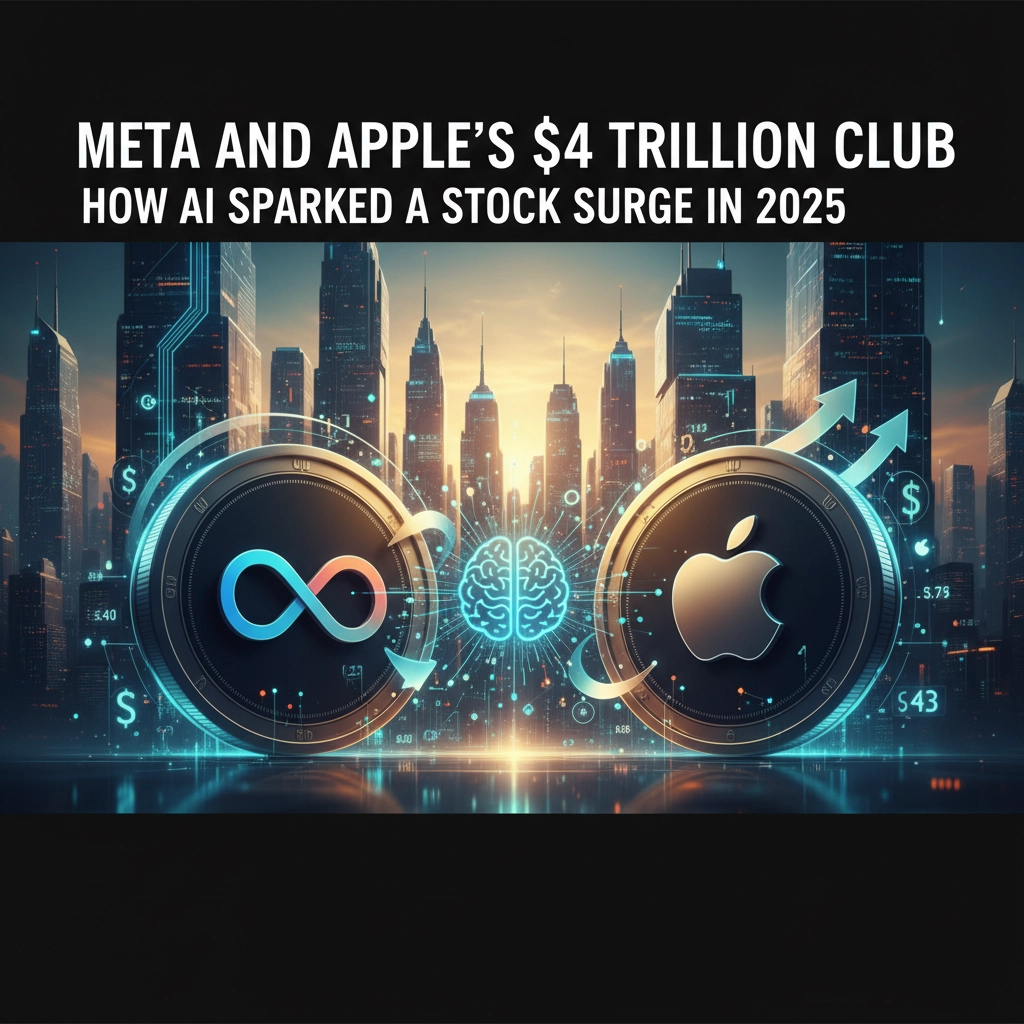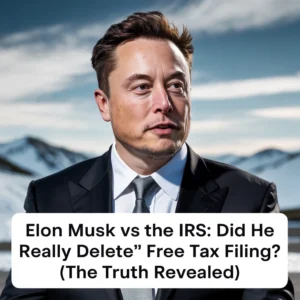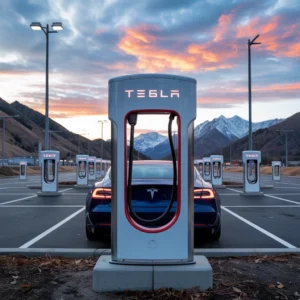Remember when $1 trillion seemed impossible? Well, we're way past that now. Apple just smashed through the $4 trillion barrier in October 2025, joining an exclusive club with Microsoft and Nvidia. Meanwhile, Meta's riding an AI-powered advertising wave that's got investors practically throwing money at them.
The crazy part? This isn't just about fancy tech demos or flashy AI chatbots. It's about real money, real profits, and AI quietly revolutionizing how these giants make their billions.
Apple Hits $4 Trillion: iPhone Sales Meet AI Promises
Apple's path to $4 trillion wasn't what most people expected. While everyone was obsessing over ChatGPT and AI assistants, Apple did what Apple does best: they sold a ridiculous number of iPhones.
The iPhone 17 series launched in September 2025, and the numbers are honestly wild. Sales jumped 14% compared to the iPhone 16 in both the US and China. But here's the kicker: in China, the iPhone Air sold out at every single brick-and-mortar store in Beijing and Shanghai within minutes. Online orders? You're looking at 1-2 week delays because demand is that insane.
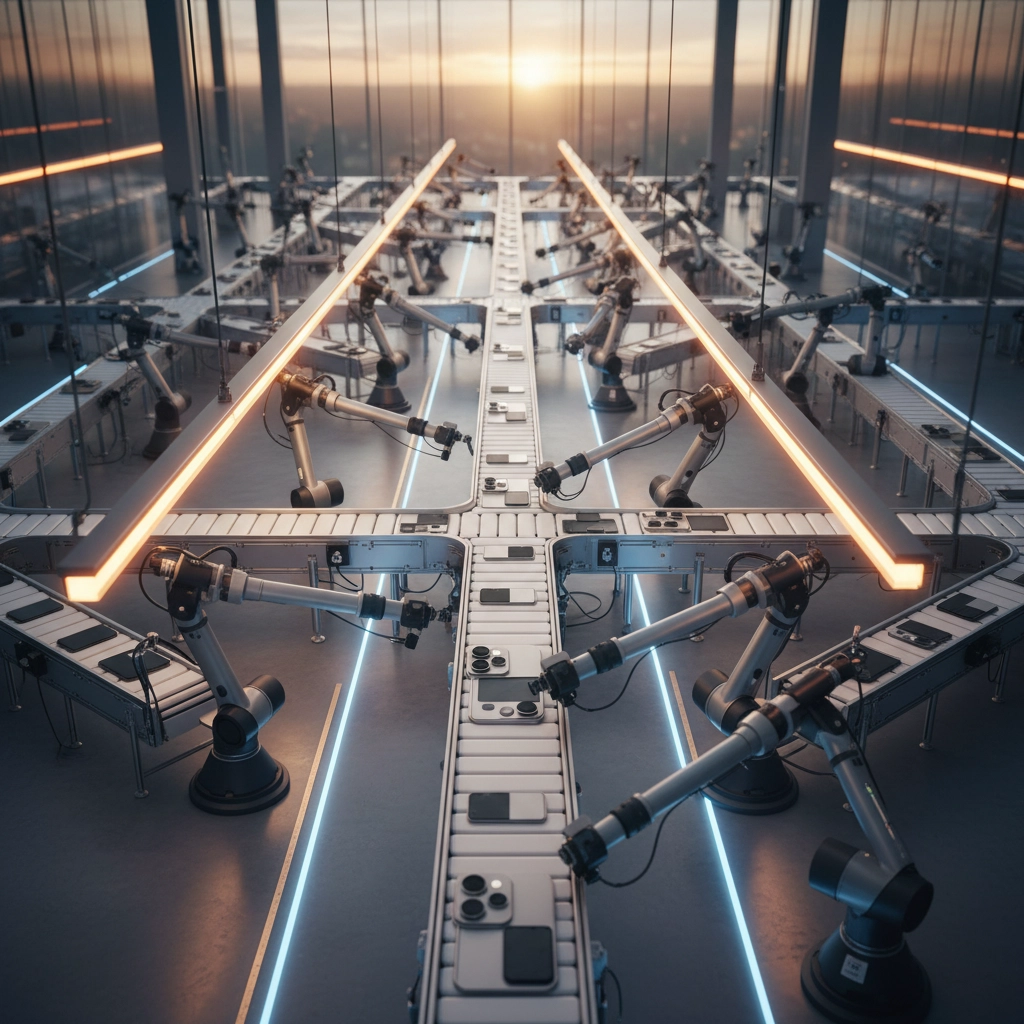
Apple's planning a 25% increase in production for the base iPhone 17 and a whopping 60% surge for the Pro Max variant. That's not just confidence: that's borderline cockiness about demand staying sky-high.
But here's where AI comes in. Apple isn't just banking on hardware sales forever. They're projecting their AI initiatives could add $75-$100 per share to their valuation over the next few years. That's not pocket change: we're talking about potentially hundreds of billions in added value.
The genius move? Apple's AI isn't trying to be the flashiest. Instead, they're building features that blend into how people already use their devices. No learning curves, no "look how smart our AI is" marketing. Just practical AI that makes your phone work better.
Meta's AI-Powered Advertising Goldmine
While Apple was selling phones, Meta was quietly becoming an AI advertising monster. Their stock surge isn't just about the metaverse anymore (thank goodness, because that was getting awkward). It's about AI making their advertising so precise it's almost scary.
Here's what's happening behind the scenes: Meta's AI tools are getting better at targeting ads and measuring results. Way better. Advertisers are throwing money at Meta because they're seeing actual returns, not just vanity metrics.
A marketing friend of mine runs campaigns for a mid-size e-commerce company. Last year, he'd spend weeks trying to figure out which Facebook ads actually drove sales. Now? Meta's AI tells him exactly which ads work, when to show them, and to whom. His conversion rates doubled in six months.
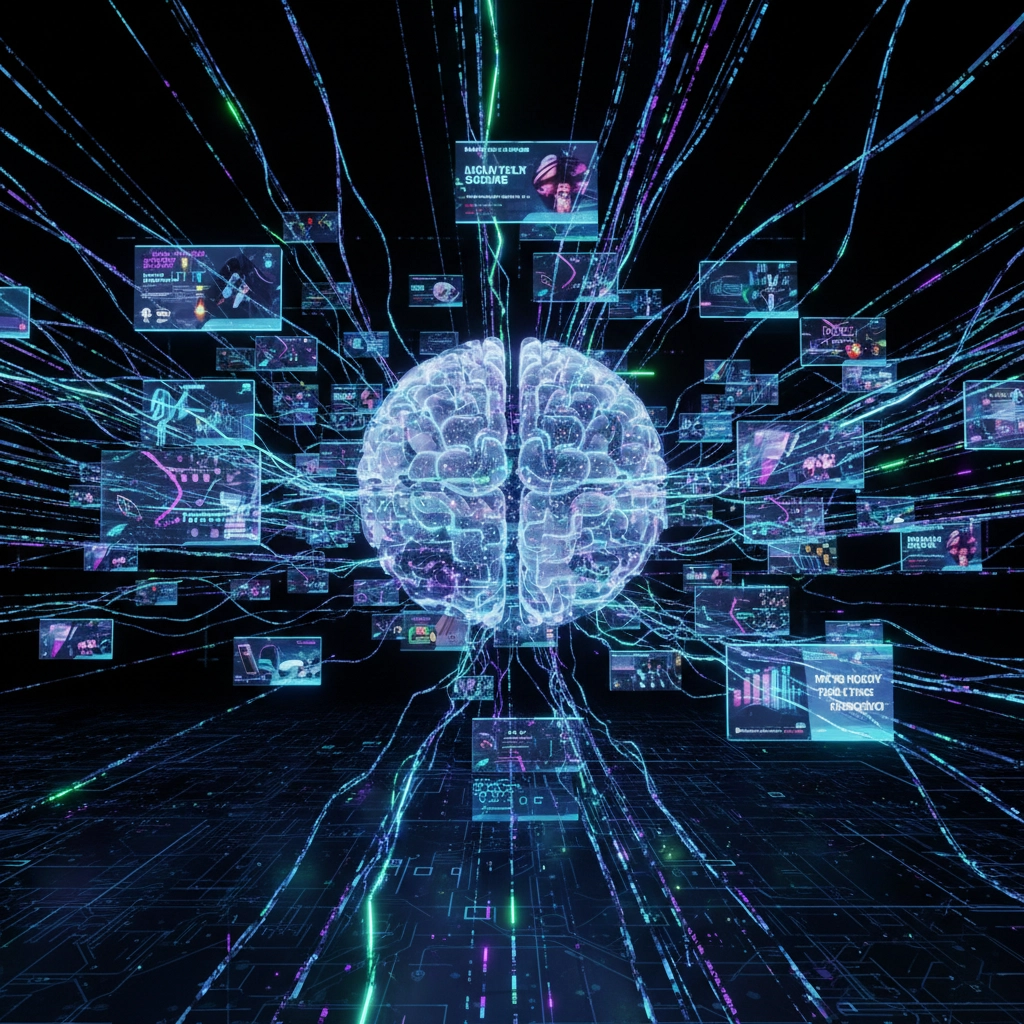
The digital advertising market is booming again after a rough 2022-2023, and Meta's grabbing a huge chunk of that growth. Their AI can predict which users are most likely to buy something, when they're most likely to engage, and what kind of content will make them stop scrolling.
This isn't theoretical anymore. Companies are seeing real ROI improvements, which means they're increasing their ad budgets with Meta. It's a virtuous cycle powered by AI that's getting smarter every quarter.
The AI Arms Race: Why These Numbers Matter
The $4 trillion milestone isn't just a nice round number: it represents something bigger. We're watching AI transform from a cool tech demo into the backbone of the world's most valuable companies.
Here's what's really driving these valuations:
• Apple: AI integration making devices more valuable and sticky
• Meta: AI-powered advertising generating higher revenues per user
• Microsoft: AI services (including OpenAI partnership) boosting enterprise sales
• Nvidia: AI chip demand creating a near-monopoly in crucial hardware
The pattern is clear: companies that successfully integrate AI into their core business models are seeing massive market rewards. Those that don't? They're getting left behind fast.

But there's a catch. This AI boom is creating some serious concentration of wealth and power. When four companies control this much market value, it raises questions about competition, innovation, and what happens if the AI bubble ever bursts.
The Risks Nobody Wants to Talk About
Let's be real for a second. These valuations are partly based on future AI promises that might not pan out exactly as planned. Apple's betting big that AI will justify premium pricing for years to come. Meta's assuming their advertising AI will keep getting better and that privacy regulations won't kill their business model.
China's a wildcard too. Apple's seeing great sales there now, but geopolitical tensions could change that overnight. Meta's basically banned in China, so they're missing out on the world's largest internet market entirely.
Then there's the competition angle. Google's not sitting around doing nothing. Amazon's pushing hard into AI. And there are probably startups in garages right now working on the next breakthrough that could disrupt everything.

The speed of change in AI is both exciting and terrifying. What seems impossible today might be standard tomorrow, and what seems unbeatable today might be obsolete next year.
What This Means for Everyone Else
Here's the thing that really matters: these companies hitting $4 trillion valuations isn't just about rich investors getting richer. It's reshaping entire industries.
Small businesses are getting access to AI tools that used to cost millions to develop. Meta's advertising AI helps local restaurants compete with big chains. Apple's AI features make creative work more accessible to regular people.
But it's also creating new forms of inequality. Companies that can afford premium AI tools are pulling ahead of those that can't. Workers in AI-adjacent fields are seeing huge salary increases, while others worry about being replaced entirely.
The $4 trillion club represents both the promise and the peril of the AI revolution. These companies have the resources to push AI forward faster than ever, but they also have unprecedented power to shape how that technology gets used.
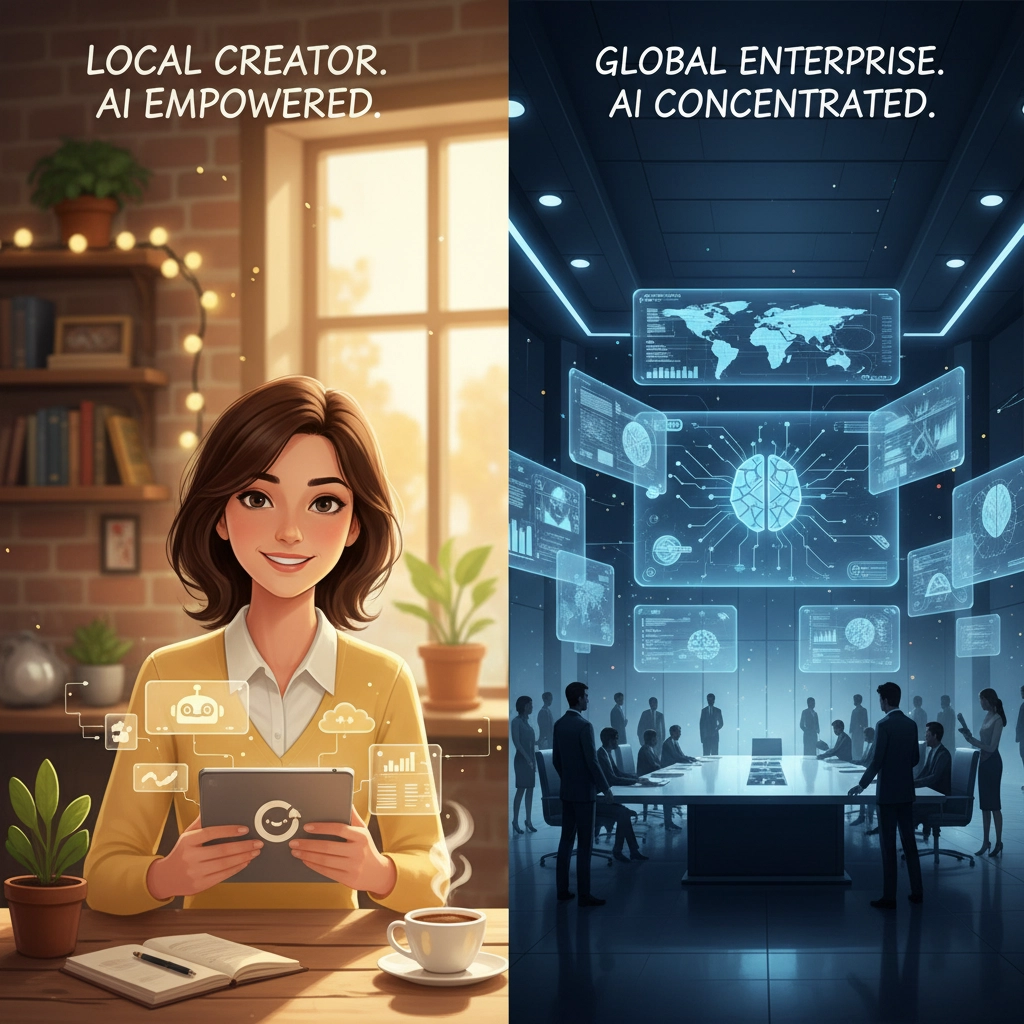
The next few years will probably determine whether this AI boom creates broadly shared prosperity or just makes a few tech giants even more dominant than they already are.
So here's the million (or should I say trillion?) dollar question: Are we witnessing the birth of a new golden age of technology, or are we just inflating the biggest bubble in tech history?

